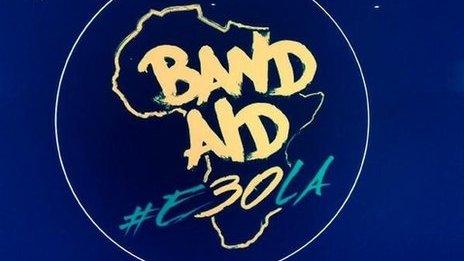Is Band Aid 30 out of tune on Africa?
- Published
- comments
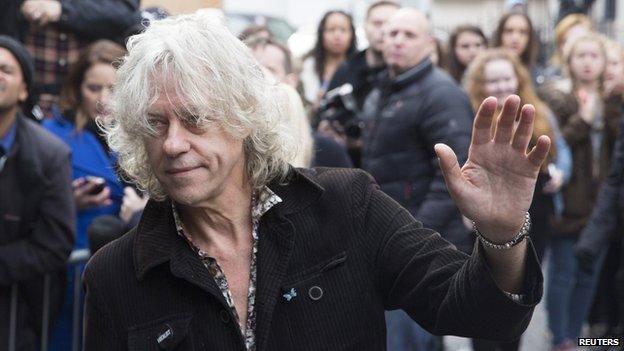
Bob Geldof is a much-loved figure in Africa
When I saw the opening sequence of the Band Aid 30 music video on YouTube it left me cold.
When you look at the pictures of a weak, dying and helpless African woman being carried from a bed on the floor, you can be forgiven for thinking that you are watching a scene from 30 years ago during Ethiopia's famine.
What you are in fact looking at, is a well-meaning act of kindness by Bob Geldof and his musicians and it's all happening in an Africa of the 21st Century.
It is of course good that the 63-year-old veteran Irish musician is trying to help fight the spread of Ebola.
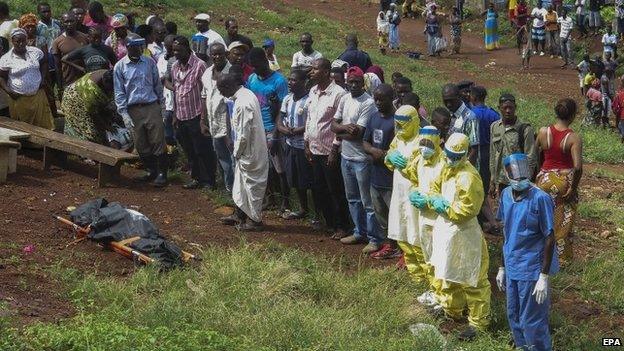
The Ebola outbreak has been declared a global health emergency by the World Health Organization
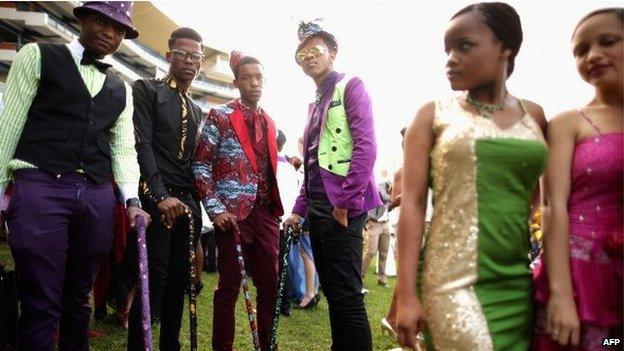
But Africa has changed in the past 30 years, with a growing middle-class
But there is another perspective which says in his effort to assist, the beginning of the video inadvertently portrays the mother continent as a place of disease, death and destruction.
Don't get me wrong - help is needed, urgently. Ebola has already killed 5,700 people since it was identified in March.
And the money generated by the song, which includes artists such as U2's Bono, One Direction, Seal and Angelique Kidjo, will no doubt go a long way in assisting the fight against the virus.
However, a new Africa has emerged since that famine of biblical proportions in Koram, with rapid economic growth on the continent.
This important milestone gets lost in the maze of Geldof and his noble efforts.
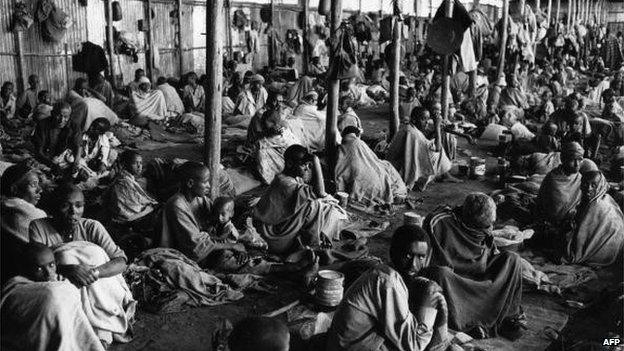
The 1984 famine had a devastating effect on Ethiopia
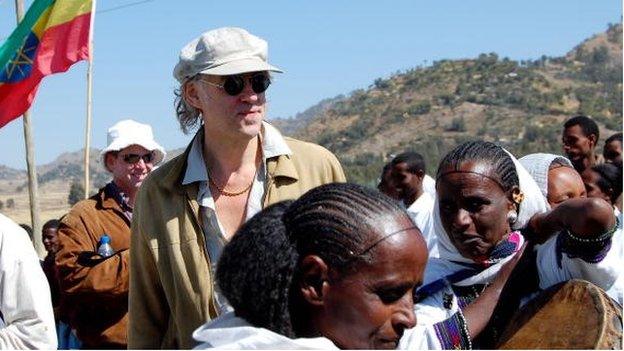
Geldof returned in 2009 to meet people who had survived the famine
This is what musician Fuse ODG told the BBC: "There's a lyric that says: 'No peace and joy in West Africa this Christmas' but there's going to be peace and joy in West Africa.
"Ebola is only in three countries, Sierra Leone, Guinea and Liberia."
'Dread and fear'
"They said no joy and peace in Africa this Christmas, what do you say?" is an online campaign which has also been started by those wanting to show a different perspective of the continent.
"I think the [Band Aid 30] song is a great initiative," Keno Ogbo, a British-Nigerian and one of the creators of WeKnowitsChristmas.com, external, told the BBC's Newsday programme.
"[But] the pain I felt when I heard the lyrics - they just didn't showcase the West Africa I know," she said. "The song is a question… and there needs to be an answer and the answer is obviously: 'We know it's Christmas.'
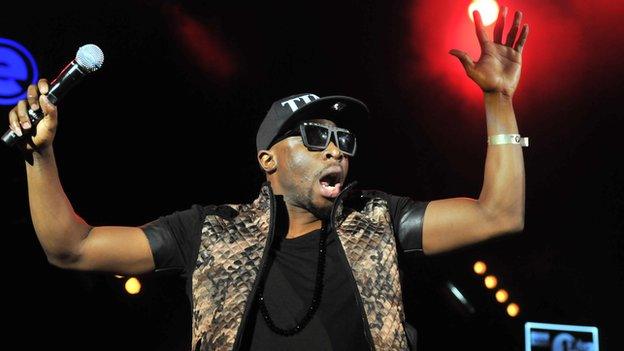
Fuse ODG is critical of Band Aid 30's initiative
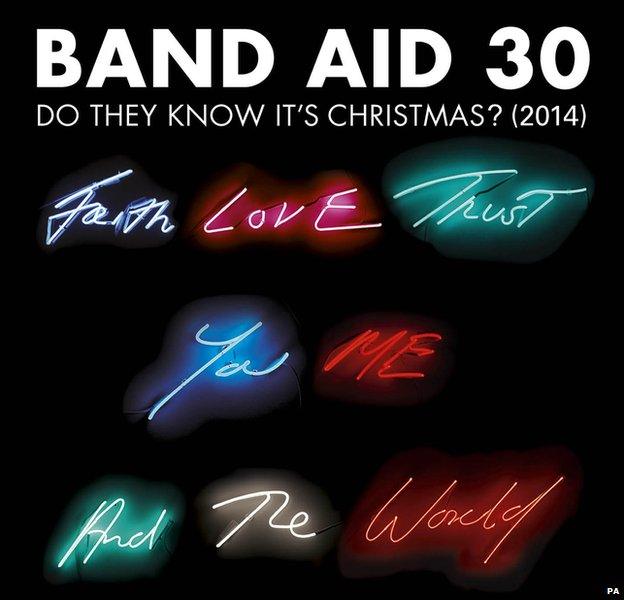
Band Aid 30 is on course to be the biggest selling single of the year in the UK
"Even in the Ebola countries, we have people saying: 'We know it's Christmas here, it's not dread and fear all the time; we still have hope in the midst of what's going on'."
African musicians have also released their own Stop Ebola song performed by Salif Keita, Tiken Jah Fokoly, Amadou and Mariam, Oumou Sangare and others under the hashtag #yesweknowitschristmas, external.
'Blonde lady'
And rich Africans are also contributing their own money.
Nigeria's Aliko Dangote, Africa's richest man, donated $5m (£3m) of his personal money to the Ebola fund. He was followed by South Africa's richest black man Patrice Motsepe with $1m.
This month, Africa's businessmen gathered, ironically, in Ethiopia to pledge over $30m to help contain the spread of the virus.
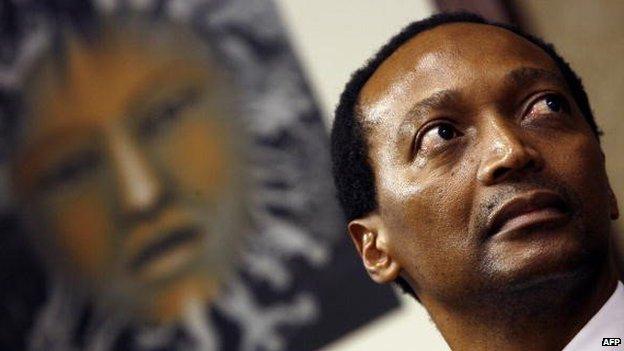
South African business tycoon Patrice Motsepe has made a $1m donation to fight Ebola
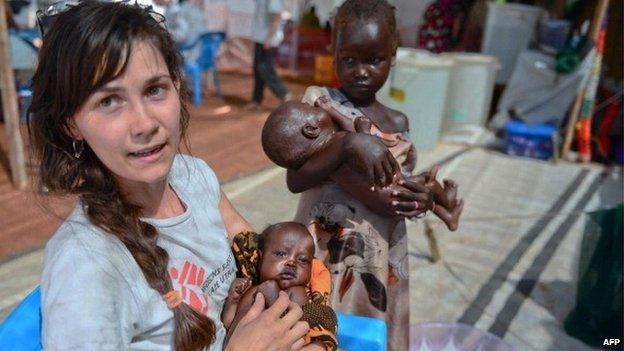
Africans are often portrayed in the media as passive recipients of Western assistance, critics say
There are many people on the continent who hope that media organisations will highlight the fact that Africans are not lying down in a complete state of helplessness, waiting for Europeans or Westerners to come and save them.
All too often, they watch news bulletins on their TV screens, portraying Africans as weak in either a UN refugee camp or a WFP feeding point, whilst a young, often beautiful blond lady, is explaining to the world what's wrong with their village or town.
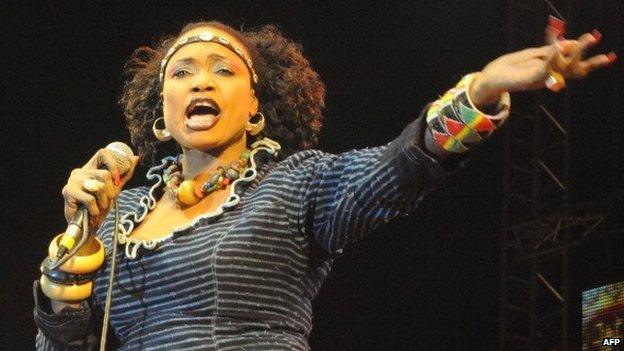
Malian singer Oumou Sangare is involved in a separate campaign to tackle Ebola
Observers say the daily diet in news packages show white middle-aged men in dark suits, white shirts and ties meeting in Brussels or such places trying to solve the problems of the world, whilst the black men are carrying machetes, guns and sticks chasing innocent women and children.
The time has come for those who are fighting on the side of the besieged African villager to acknowledge that Africans are helping themselves. Ebola 2014 is not Ethiopia 1984.
Geldof should not stop his support for Africa, he is a much-loved figure for many of us down here.
But perhaps he should have brought in a lot more Africa-based musicians to be a part of his project. That would have helped tackle the notion that Africans are just perpetual recipients of foreign aid.
- Published17 November 2014
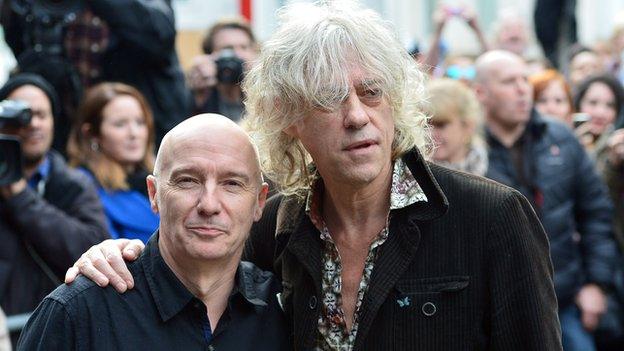
- Published16 November 2014
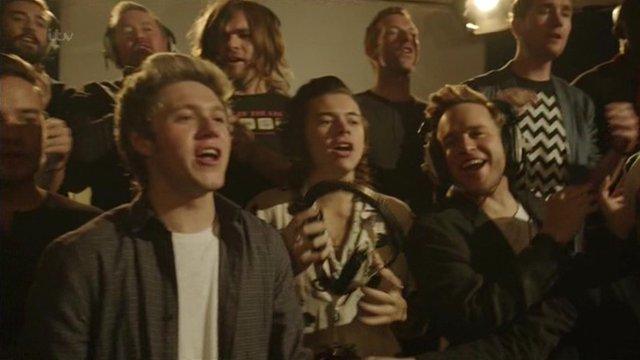
- Published15 November 2014
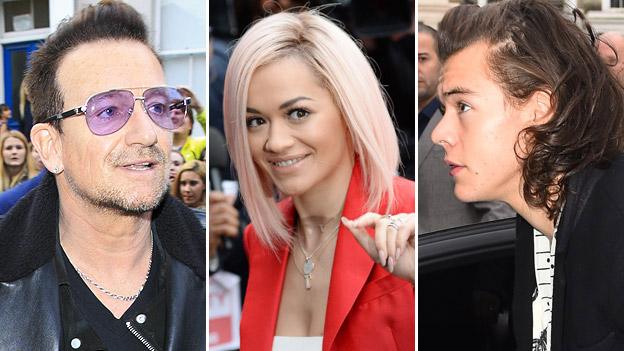
- Published10 November 2014
